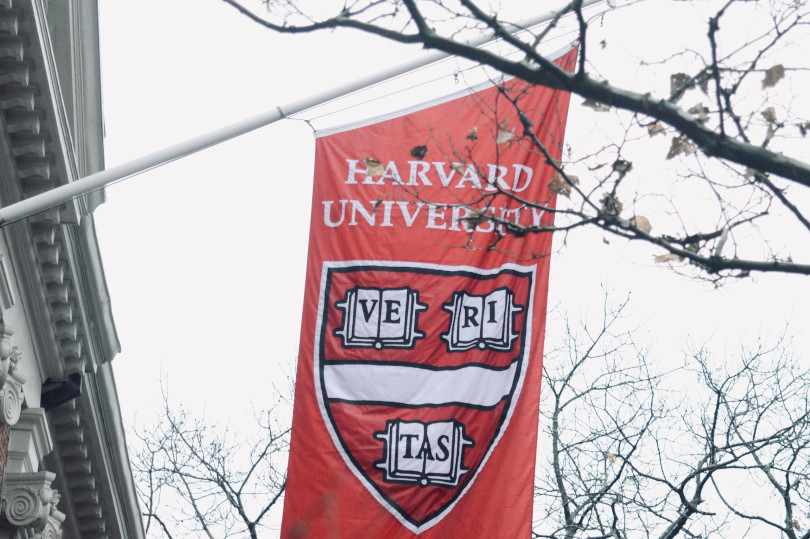The school year ended on a horrible note in late June.
The Supreme Court made a historic decision to strike down affirmative action in higher education in Students for Fair Admissions vs Harvard. They declared that race and cultural background should not be a factor during the admissions process. The decision caused students and faculty across the country come together and protest. Students have shared anxiety over how they’re going to navigate applying for higher education in the future. How will students and leadership of higher education move forward after this decision and contain a diverse environment on campus?
What Is Affirmative Action
Affirmative Action is a policy to ensure that discrimination isn’t a factor in employment and higher education admissions. The policy was introduced during Civil rights movement so Black people and other people of color could have jobs.
Responses To The Ruling
University of Maryland’s president and vice president Darryl J. Pines and Jennifer King Rice responded to the ruling in a public statement, “The educational value of campus diversity is one we will not sacrifice.”
George Washington University’s leaders, President Mark S. Wrighton and President-elect Ellen M. Granberg also responded, “The GW Board of Trustees is disappointed by the decision of the U.S. Supreme Court…This is critical work not only because it enables our university to fulfill its academic mission, but also because it helps our students flourish, maximizing their ability to effect change here on campus and beyond.”
President Melanie Perreault of Towson University wrote in a mass email to students. In it, she stated “With a student population that increasingly reflects Maryland’s diverse population, we recognize that diversity and inclusion are not to be feared, but to be celebrated as a source of strength.”
Reactions from Towson University Faculty
I asked faculty and students in Towson University about their thoughts and reactions on the decision.
“I believe that affirmative action has been absolutely necessary to create an equitable American culture,” says Professor Dr. Zosha Stuckey of the English and Professional Writing department. “It has allowed us as a country to realize that diversity is a strength and that not everyone has the same access to goods and resources. Take the university, for instance. It is crucial to have a student body and a faculty/staff population that, at the very least, mirrors the community the university is in.” The majority of Baltimore is Black with 61% of citizens identifying as so.
Stuckey continues, “If that doesn’t happen naturally, then affirmative action can create the necessary balance of equal access and equal representation. One last important piece: affirmative action has nothing to do with allowing people access who aren’t qualified. Rather, it means giving access to education (goods, services, etc.) to people who are just as deserving, have just as much potential, and just haven’t had the wealth/knowledge needed to enter dominant culture in the ways privileged populations can do so seamlessly.”
Towson Student’s Responses to the Matter
“I think it’s unfortunate that this current Supreme Court decision has made so many landmark decisions that are regressive,” Sam, a graduate student of Towson University says. “To say that race is not a factor in attaining education is absurd. I am for Affirmative Action, and I hope in the future their ruling will be reversed.”
“Growing up, I had learned about affirmative action and what it entailed. It seemed very unnatural. Forcing people to make certain decisions based on race may be missing the point. It certainly comes from a place of wanting to create equal opportunity for all, but was this the right way to go about it? I would like to believe that we could rely on universities to take the proper steps to ensure diversity themselves. This is the opportunity for universities to show their ability to ensure a diverse student body on their own terms,” says Sam Pinales, another student from Towson University.
My Thoughts on Affirmative Action
The fight against affirmative action is powered by anti-Blackness. Jon Wang, one of the plaintiffs in Students for Fair Admissions vs Harvard, has been the center of affirmative action conversation. He applied to elite schools such as Harvard, Berkeley, and MIT with a high SAT score and GPA but was rejected. Wang said “I gave them my test scores, and then they must’ve ran the model on that… [they] told me I had a 20% chance of getting accepted to Harvard as an Asian American and a 95% chance as an African American.” White students make up 39.7% of Harvard University with Asian students being the second most populated demographic at 13.7%. Black students only make up about 6% in Harvard University. MIT has white students (27.3%) and Asian students (20%) as the two leading demographics, with Black students only making up 4.4%.
Affirmative action is a policy that gives everyone the opportunity to learn. I believe that a lot of Black people will be left behind in higher education and may find excelling in their dream careers to be at risk because of this decision. This fight against affirmative action is rooted in anti-Blackness. It feeds the lie that Black people who are “less qualified” are taking up space in the ivy league.


